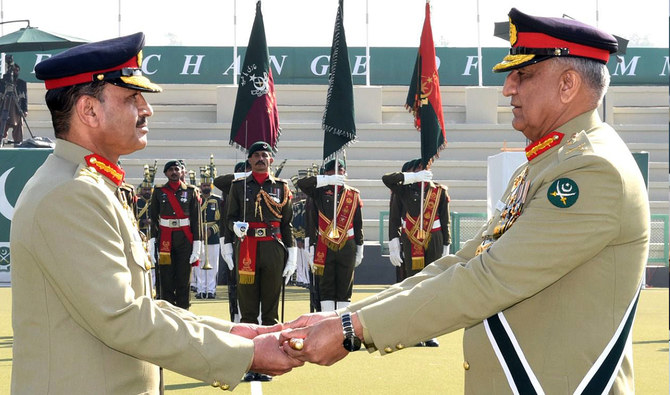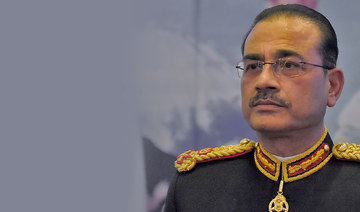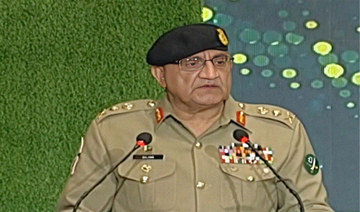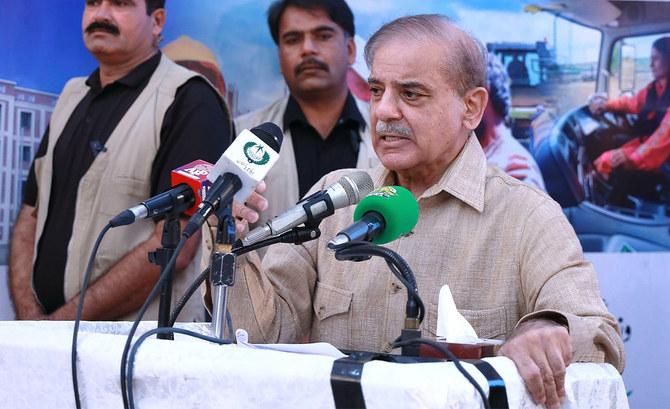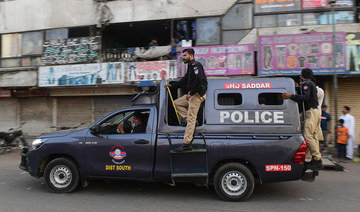ISLAMABAD: General Asim Munir assumed charge of the Pakistan army at a ceremony on Tuesday, taking over command from outgoing chief, General Qamar Javed Bajwa, at a moment of intense public debate over the military’s role and power in Pakistan’s political system.
Bajwa retires after completing a six-year extended term heading an institution that has historically held a massive sway in governance and foreign policy matters of the nuclear-armed South Asian nation.
He also steps down at a time when the army, which has ruled Pakistan for nearly half of its 75-year history, has come under intense criticism, arguably unprecedented for the all-powerful institution, particularly for its role in politics.
At the center of the attacks is ex-premier Imran Khan and his PTI party, which has accused Bajwa of backing the Shehbaz Sharif-led coalition government and helping it come to power through a parliamentary vote of no-confidence that removed Khan from office in April. The army denies this.
“I have complete faith that under his leadership, the army will set new benchmarks of success,” Gen Bajwa said of his successor in his farewell speech at the change of command ceremony at the army’s headquarters in Rawalpindi.
“God willing, his appointment will prove to be positive for the army and the country.”
At a speech last week, Bajwa directly took on Khan, saying the military would play no role in national politics in the future.
“A state of hysteria was created in the country on the pretext of a fake and false narrative,” the army chief said about criticism of the military based on Khan’s main accusation that Washington supported his removal with the help of local political rivals, a charge denied by the United States.
Bajwa also said last week that the military had decided in February last year to quit any role in Pakistani politics.
Analysts remain skeptical that it will do so, and soon after his retirement, his critics described his legacy as one of “political turmoil.”
“Gen Bajwa leaves behind a legacy of political turmoil, a shattered economy and worst of all a fracturing of the relationship of trust between the army and citizens, with his decisions,” senior PTI leader and Khan aide, Asad Umar, said on Twitter.
“There is massive damage control that the new GHQ set up will have to undertake post departure of Gen Bajwa,” former human rights minister Shireen Mazari said, referring to the new military leadership.
Ahead of the handing over, Bajwa on Monday held farewell meetings with PM Sharif and President Arif Alvi, in which both leaders lauded the outgoing officer’s services for Pakistan.
“Under the leadership of General Qamar Javed Bajwa, the army demonstrated exemplary services in effectively dealing with various challenges, including the country’s exclusion from the FATF (Financial Action Task Force) Grey List, COVID-19 pandemic, and the recent flashfloods,” the PM office said in a statement.
“You had the honor of leading the best army in the world.”
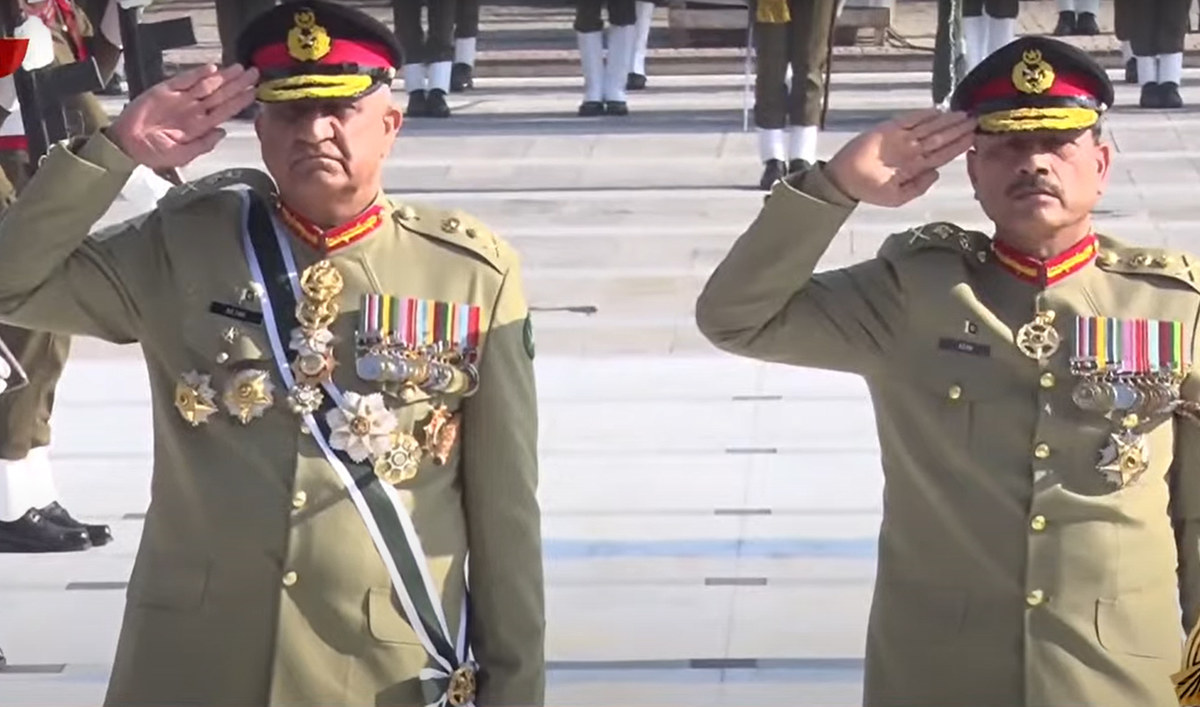
This screengrab, taken on November 29, 2022, shows the Pakistan army's outgoing chief General Qamar Javed Bajwa, and the newly appointed chief General Asim Munir at a change-of-command ceremony in Rawalpindi. (Photo courtesy: YouTube/PTVNews)
The army’s command now goes to Munir who has held some of the top positions in the military in a career spanning over three decades.
Described as a “clear-headed” general by the media, Munir grew up in the garrison city of Rawalpindi and is the son of a school principal. He received a prestigious award for officers known as the ‘sword of honor’ as top of his year at the military academy.
Munir has previously served as chief of Pakistan’s Military Intelligence in 2017 and the Inter-Services Intelligence in 2018. He was abruptly removed as ISI chief after just eight months on what is widely believed to be the request of then-prime minister Khan. No reason was given for his removal.
Before becoming army chief, Munir served as the army’s quartermaster general.
Domestically, his appointment could impact Pakistan’s fragile democracy at a time of street protests and amid widespread calls for early elections. He will also most certainly lead the path of Pakistan’s ties with neighbors India and Taliban-ruled Afghanistan, and choreograph the delicate dance of Islamabad’s relationship with Beijing and Washington.



